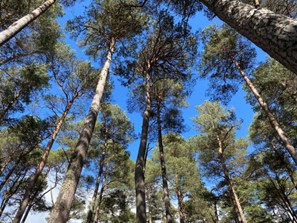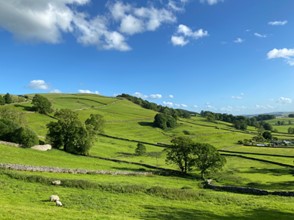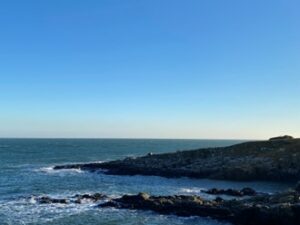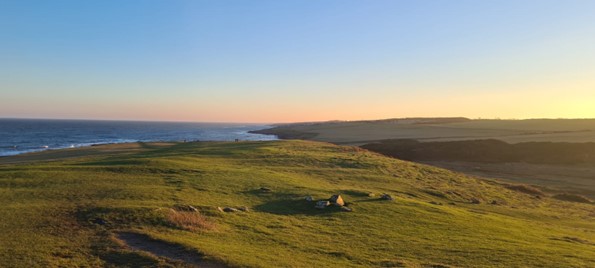Introduction
One of the great things about working in ecology is that our jobs are diverse and always changing – because we work with nature and the environment, we also work with the seasons. In this blog, we take a look at the types of work EcoNorth undertakes throughout the year and what that looks like from one employee’s perspective.
Spring
In short, spring is the time when the focus on conducting surveys and other outdoor work really gathers pace.
While legislation and best practice guidelines don’t always put a hard limit on the times of year ecology work can take place, some elements are best suited to certain seasons. Some examples of this are the Preliminary Ecological Appraisal (PEA) and other types of woodland habitat surveys, timings of which become optimal during mid to late spring. This is because these surveys often rely on being able to identify flowering plant species which come into season early in the year.
As winter tends to be cold and wet, many of our construction clients to whom we provide Clerk of Works (ECoW) services halt works over winter and resume during spring. One part of ECoW often required is the identification and protection of nesting birds and, because some species begin nesting in March, this can often pose a challenge during spring. We try our best to figure out ways that ensure that our clients can hit the ground running during spring while maintaining safe, legal and ethical working practices for nature.

Summer
Summer is prime time for ecology and represents our busiest season in terms of conducting surveys and outdoor work. We push hard to ensure that we get all the data that reports will require, but even with an expanding team this is often challenging! I spent a lot of summer 2023 surveying for bats, both during tree climbing aerial inspections and nocturnal activity surveys for a large project in County Durham. Other species optimally surveyed during summer include: badgers, breeding birds, invertebrates, pine marten, water vole and freshwater pearl mussel as well as a wide range of botanical surveys, particularly in grassland habitats. A lot to get done as you can see! For me, this time of year is tiring at times but incredibly rewarding and is my favourite part of the year for this reason – my best memories at EcoNorth are of long summer days enjoying the outdoors in great weather and getting the job done.

Autumn
During autumn, fieldwork can include the last of the bat surveys (until the end of October, so long as temperatures remain sufficiently warm) and great crested newt surveys, but transects for red squirrels and surveys for otter, water vole, badger and migratory birds are important too. One of the challenges we can experience at this time is the wet and windy weather, which can prohibit certain aspects of our job like bat activity surveys and tree climbing – it’s always worth having a few weather forecasts to hand!
Autumn is also the time when we transition our focus from fieldwork to deskwork. It is an important time to make sure that the data collected during the summer is translated to a form useful to the client, whether that be maps, reports, or clean raw data. One of the most enjoyable parts of autumn is seeing all of the hard work from earlier in the year coming to fruition and providing our clients with our deliverables they’ve commissioned, which means a lot or reporting and billing to complete!

Winter
Winter is our quietest time of year (which still tends to fairly busy). My two favourite things about this season are wintering bird surveys (also my favourite type of bird survey) and getting a break – in that order!
While winter is largely based in the office, there is still fieldwork to do. This year we have a number of wintering bird surveys to conduct, new large projects to undertake including a significant habitat change detection scheme, and ongoing projects to finish such as our peatland habitat mapping project which will continue to run into spring 2024.
The flexi leave system employed at EcoNorth means that winter is also the perfect time to take back those hours of overtime put in during the summer and enjoy some well earned time off which, when combined with the company’s generous Christmas break, can be an ideal time to rest and reset for the year ahead.
Summary
Work at EcoNorth, and in ecology generally, is hugely varied and flows with the seasons. In my opinion, it is one of the best aspects of my job here and makes me feel part of nature myself, enjoying the outdoors at its best and having varying levels of workload intensity.
by Alex Douglas

